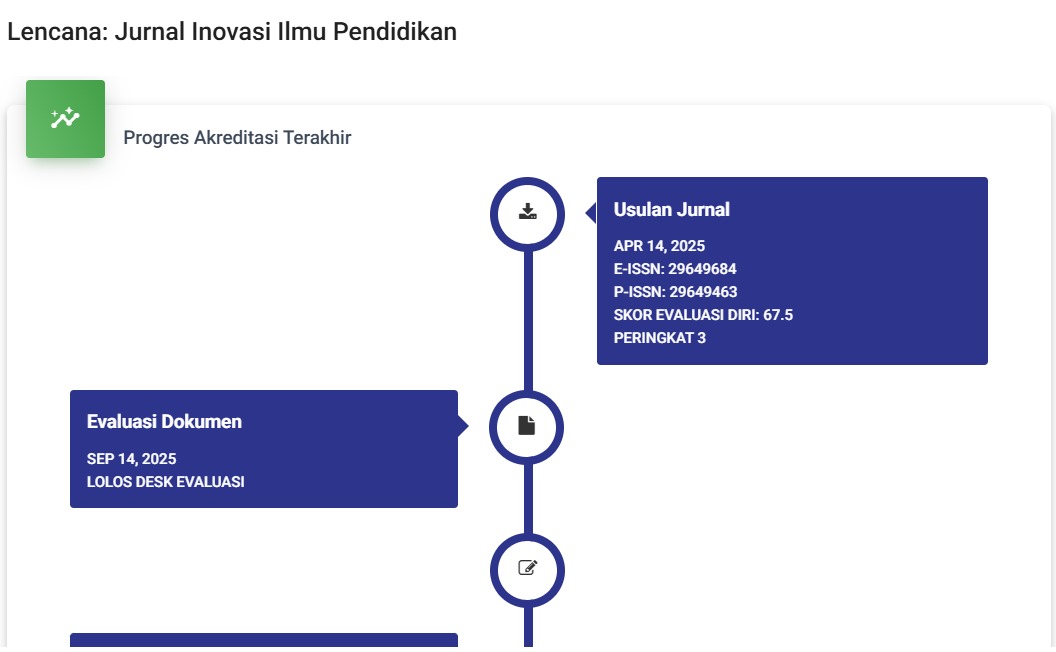Pengaruh Model Realistic Mathematic Education (RME) Terhadap Hasil Belajar Siswa di SD 101774 Sampali
DOI:
https://doi.org/10.55606/lencana.v2i1.2976Keywords:
Realistic Mathematic Education (RME), Learning Model, Learning OutcomesAbstract
This research was carried out with the aim of finding out the effect of the Realistic Mathematic Education (RME) learning model on student learning outcomes in the fourth grade flat shape mathematics subject at SDN 101774 Sampali. The research population was 60 students, consisting of 30 students in class V-A and 30 students in class V-B. The research sample uses the Total Sampling technique so that the entire population doubles as the research sample. This type of research is Quasi Experimental where this research looks for the effect of certain treatments on 2 homogeneous conditions.The research procedure consists of preparation, implementation and final stages. Before carrying out the research, research instruments were tested, namely testing validity, reliability, level of difficulty and distinguishing power. Next, a pretest was given to both classes, then the experimental class was given treatment with the Realistic Mathematic Education (RME) learning model, while the control class did not use the RME (Realistic Mathematics Education) learning model and finally both classes were given a posttest. The data was analyzed and prerequisite tests were carried out, namely normality test, homogeneity test and hypothesis test.Based on the pretest in the experimental class, the average student learning outcome was 45.67 and after applying the Realistic Mathematic Education (RME) learning model, the average student learning outcome in the posttest was 81.03. Thus, it can be concluded that there is an influence of the Realistic Mathematic Education (RME) learning model on student learning outcomes in mathematics subjects for fourth grade students at SD 101774 Sampali.
Downloads
References
Ahmad Susanto. (2016). Teori Belajar Pembelajaran Di Sekolah Dasar. Jakarta : Kencana
Dalyana. (2013). Pengembangan Matematika SD. Jakarta : Direktorat Jendral Tinggi Dapartemen Pendidikan Nasional
Mailani Elvi, Manurung Imelda Free Unita, (2018). Develompent of Mathematics Learning Books For Primary Teacher Education Students.Medan Indonesia. ACEIVE.
Milfayeetty Sri, dkk. (2018). Psikologi Pendidikan. Medan : PPs Medan
Özdemir, B. G. (2017). Mathematical Practices In A Learning Environment Designed by Realistic Mathematics Education : Teaching Experiment About Cone and Pyramid. European Journal of Education Studies.5(2).
Paramita,R.W.D., Rizal, N., & Sulistyan, R.B. (2021). Metode Penelitian Kuantitatif . Lumajang. Widya Gama Press.
Simaremare Aman, Yusnadi. (2018). Ilmu Pendidikan. Medan : Halaman Moeka
Tarigan, D. (2017). Meningkatkan Hasil Belajar Siswa Dengan Menggunakan Pendekatan Realistik Mathematic Education ( RME ) di Kelas V SD. Jurnal Sekolah ( SJ ), 4(1), 88–100.
Downloads
Published
How to Cite
Issue
Section
License
Copyright (c) 2023 Lencana: Jurnal Inovasi Ilmu Pendidikan

This work is licensed under a Creative Commons Attribution-NonCommercial-ShareAlike 4.0 International License.








